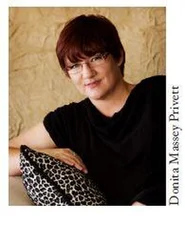He tried keeping away from the phone and he could do that when it was a matter of phoning her. It was less easy when it rang and, when he didn’t answer, rang again. Of course it was Melissa. She said, ‘Please come round. I feel I’ve done something to hurt you or offend you. Please come round and tell me what it was.’
‘You haven’t done anything,’ he said, and he went round. She let him in, and when she had closed the door, she put her arms round him and held him in a close hug.
Alan had discovered something about himself. Lovemaking was only possible for him if he loved the woman he was with. That wasn’t quite correct. Admired might be a better word. If he admired her, honoured her, respected her. He had had those feelings for Daphne, and now as he looked back over the years, he saw that whenever he thought of her, which he did quite often, it was with consistent admiration, thinking how beautiful she was, how clever and how accomplished, a strange word but somehow true. All that was gone. He could even ask himself now after so many years what a young girl of nineteen or so was doing having sex with a young man in the back of a car in Epping Forest. How could she? Perhaps the answer was that she had had that experience seven years before and it had coloured her whole life. Now he felt he couldn’t touch her again and when they were in bed and she moved close to him, he shrank away. All the time he thought that maybe his old feeling would come back but it didn’t. Rather, he grew more revolted until he knew he would have to leave. He even thought of leaving in the night. Going to bed with her, waiting for her to fall asleep, then getting up and picking up the case he had packed and sneaking out of the front door. He couldn’t do it. He knew she would soon say something and she did.
‘What is happening to us, Alan?’
Even then the temptation to deny it, to say he wasn’t well, he was ‘under the weather’, was very great. ‘It isn’t working,’ he said. ‘I suppose we know each other better. Maybe we should have waited before living together.’
‘It’s what I told you about me and John Winwood, isn’t it?’
There was something about her that compelled him to be truthful. He couldn’t look into her eyes and deny that everything that was going to split them up had come about because she, a child, had encouraged a man of forty and more to make love to her, had enjoyed it. ‘It is,’ he said. ‘I can’t help it, Daphne. I can’t do anything to change it. I have tried. You don’t know how often I have tried to get it it out of my mind, but I can’t.’
‘I would go back and undo it if I could,’ she said. ‘When I’d finished telling you – no, before I’d finished – I realised how I’d shocked you. I’d horrified you. I knew it was too late. I thought, maybe it’ll be all right, he will sleep on it, he’ll forget. But you didn’t, did you?’
He didn’t answer directly. ‘We’re completely different, you and I. I was brought up by quiet, conservative people who wanted everything to stay the same. You were ahead of your time. I don’t know why. I thought it was wonderful when we made love in your dad’s car. Every time it was a marvellous thrill. Would it have lasted?’
‘For a little while,’ she said.
He packed a suitcase. He had bought clothes since he came to live with her and one bag wasn’t enough. Daphne said she would send the rest on. ‘You’ll be home for Christmas. That will be nice, with the family.’
‘I suppose so.’
The new suitcase felt very heavy. It felt much heavier than the case he had arrived with in the summer. It must be his age. Not months but years had been added on over the past two or three weeks. He seldom looked at himself in the mirror, but now he did and saw a very old man, a man who looked too old to look after himself.
He wondered how he should say goodbye to Daphne. A kiss on the cheek seemed an insult, so he did nothing. He stood there and said, ‘Goodbye, Daphne.’
She nodded, said, ‘Goodbye.’
Her farewell had a more permanent ring than if she had used his name. She stood in the doorway while he went down the steps, walked to the gate and turned round to face her. He thought he had never seen so sad a face but he said nothing, only raised his left hand and walked on, through the gate and down the street. Giving up the struggle, he hailed the first taxi that came and asked the driver to take him to Marble Arch and the Central Line.
The shortest day had come and gone. Sitting in the train, Alan thought about that day when Rosemary had come to Daphne’s house. She had fallen half across the table and knocked over a glass of wine. Then she had said she hated him but he knew she loved him. That was why she had come, to try to get him back. Now, once he was at home, he would make a great effort at being a good husband. It was a long time since he had told her he loved her, and that was something women of all ages wanted to hear. It was a long time since he had bought her anything or taken her anywhere except to one of those cheap restaurants in the High Road. Well, he could remedy that, it was hardly a difficult task. You could control what passed through your mind, especially when you were old. He didn’t want to think of Daphne, yet he remembered how not long ago he could think of nothing and no one else. This was a young man’s behaviour, but he was old, old as the hills.
Seven thirty. Dark as pitch but a moon had appeared and a taxi was waiting outside the station. The driver got out, picked up his case and put it in the back. Loughton was a very nice place. It had always surprised Alan that though it was on the edge of Epping Forest, had some beautiful old buildings, was richly endowed with ancient trees, had a tube station and a bus route passing along its high road, it had never taken its place in the limited category of lovely London suburbs. Hampstead, Highgate, Chigwell, Dulwich. Really, the block of flats where he lived – had lived and would again – was one of those beautiful buildings, built half a dozen years ago when architecture was restored to its former glory. He gave the driver a large tip and got his suitcase carried into the entrance hall.
Lights were on in the flat. He saw that before he stepped out of the lift into the first-floor hallway. The suitcase dropped on to the floor and his finger touched the bell. He had to ring it again, and then she answered.
‘Rosemary,’ he said. ‘Rosie.’
She looked at the case. She looked up at him. ‘Why are you here?’
‘Oh, come on, Rosie. I do live here.’
‘You did. Not any longer. I’m going to have my supper. Good night.’
She closed the door in his face. He rang the bell again and again. The light in the hall was turned off. He picked up the case and went down in the lift. Outside again, he looked up and saw that the lights in the flat were all off too. What had he done with his key? Put it in one of the pockets of his suitcase and never touched it since. On a wooden seat in Traps Hill he set the case down and opened it. No key. He was putting clothes and shoes back when he remembered that this was the new case. The key was still in the old case he had brought with him to Daphne’s.
It was very cold and a white frost was showing on the tops of garden walls. He sat down on the seat where he had put the case and tried to think what to do. Find a hotel? Go to a friend?
If he could find a friend, perhaps he could go to Rosemary in the morning and explain that he had come back, that this was permanent, their separation was over. He got out his phone, called Maureen and was told not very warmly that he could come to Carisbrooke if he liked, but only for the one night. The suitcase was very heavy. He trudged across the High Road and began the climb up York Hill. Loughton, at only ten minutes to eight, was empty. The only people who were ever about on a weekday evening were teenagers in hoods, loafing about in doorways smoking and carrying drinks cans. ‘Lost your way, Grandad?’ one of them called out to him. Alan wondered why he had ever thought it a desirable place to live.
Читать дальше












